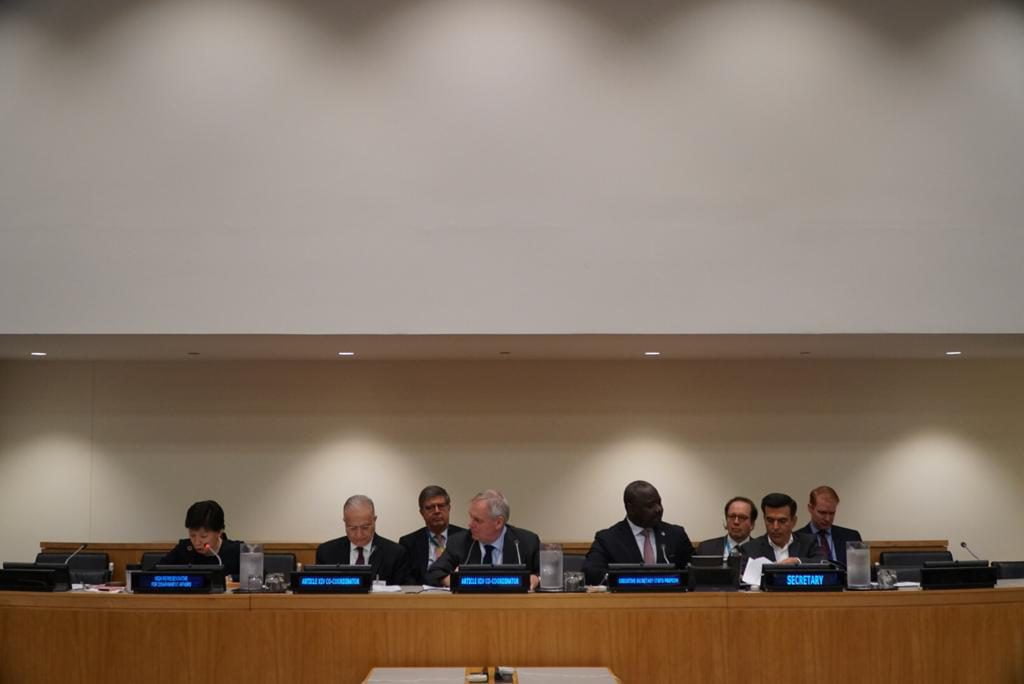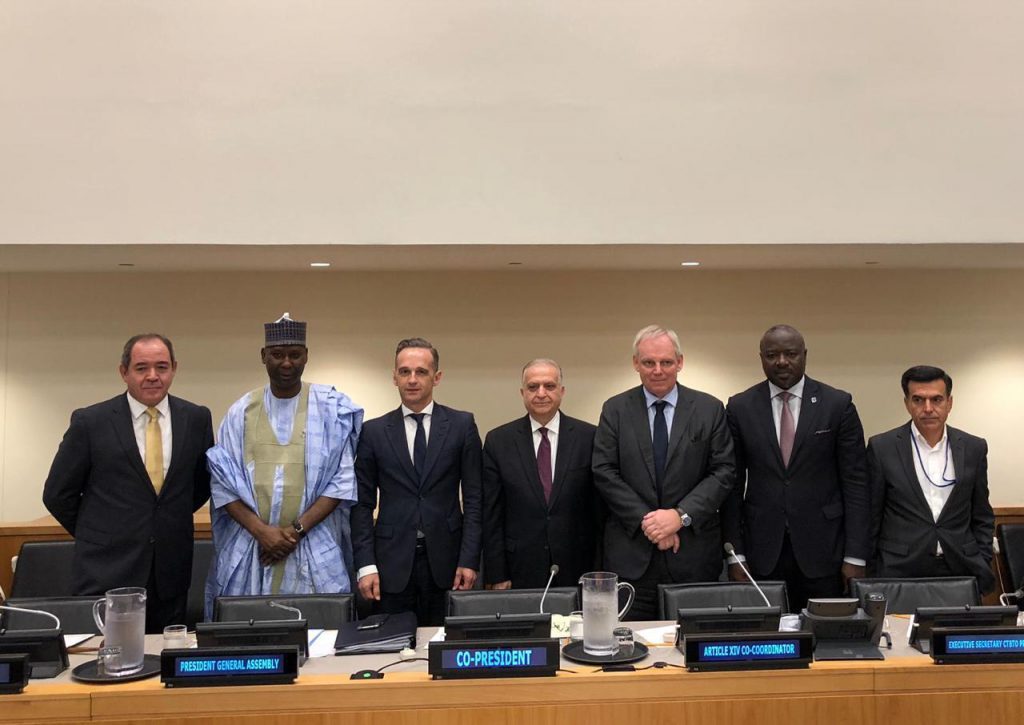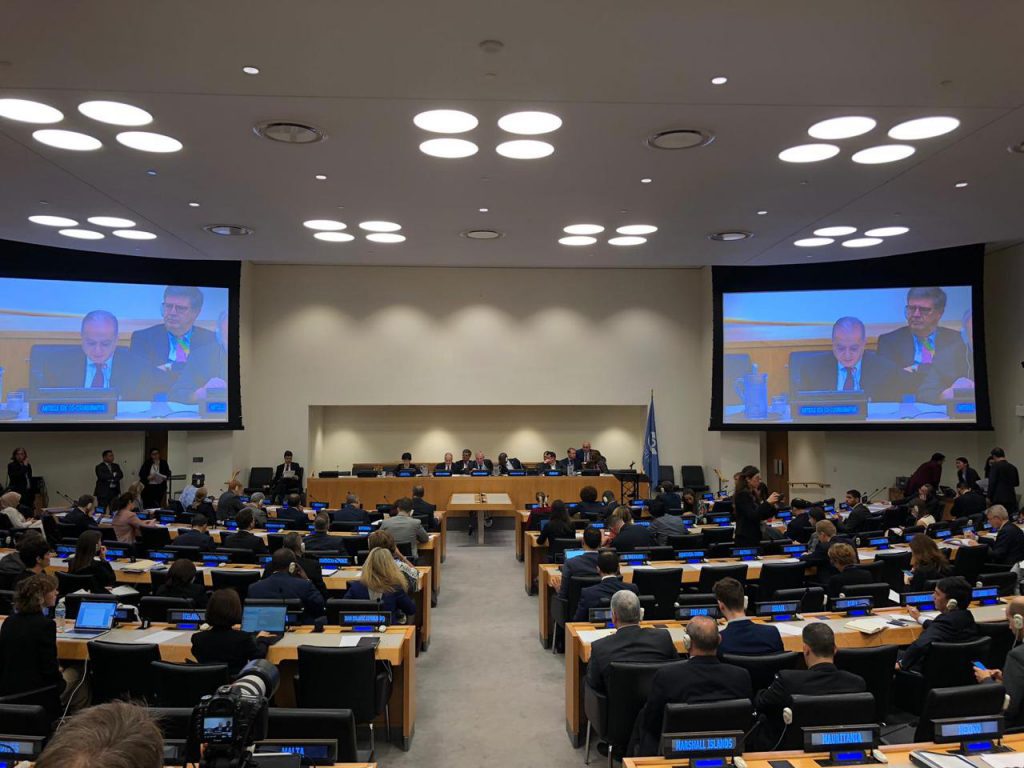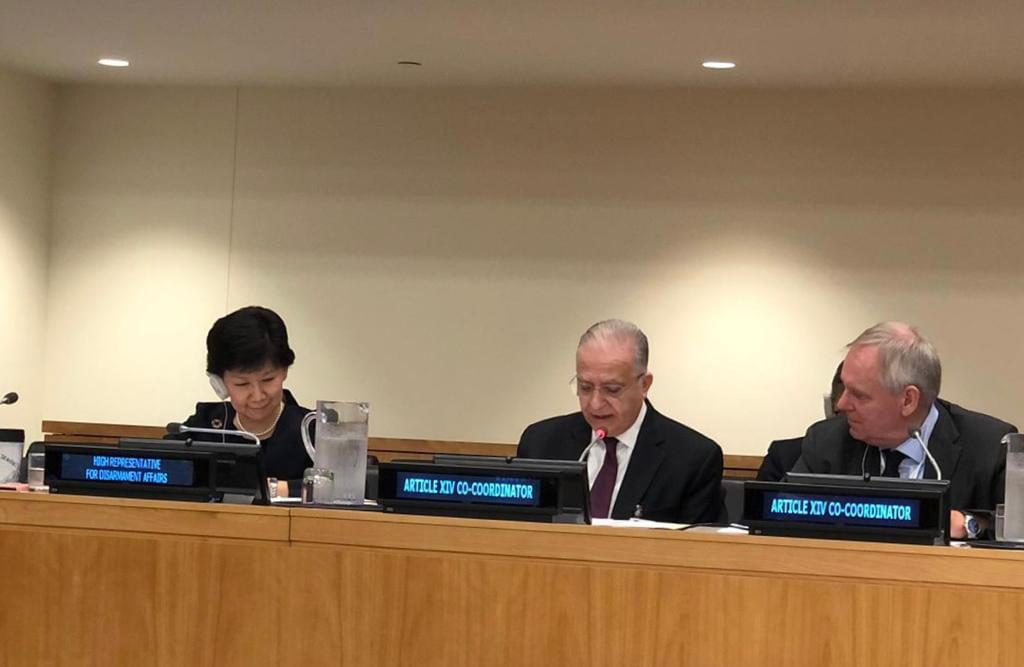Foreign Minister Gives Iraq’s Speech at the 11th Article 14 Conference on Facilitating the Entry into Force of the Comprehensive Nuclear-Test-Ban Treaty
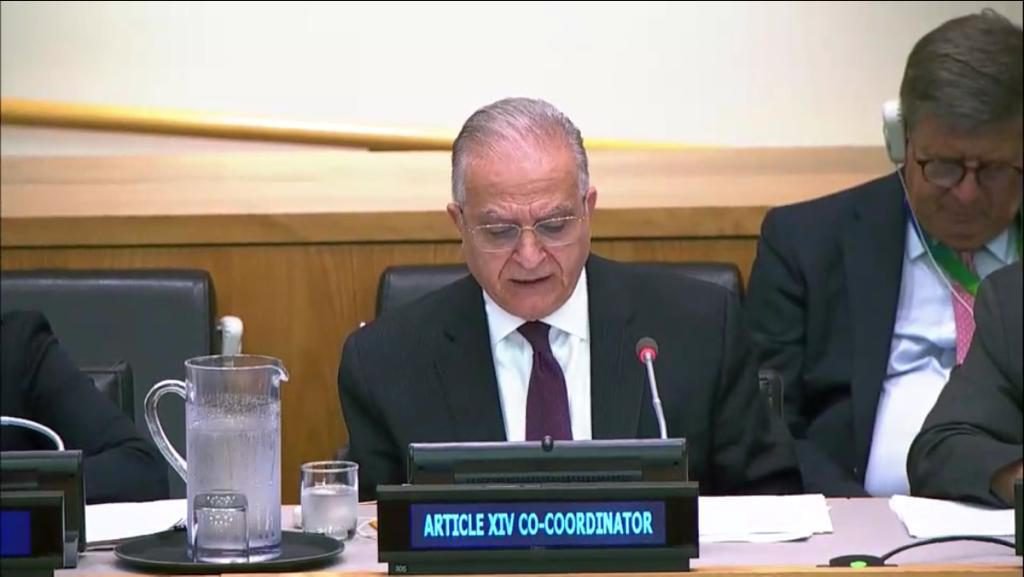
Foreign Minister Mohamad A. Alhakim gave Iraq’s speech at the Article 11 Conference on Facilitating the Entry into Force of the Comprehensive Nuclear-Test-Ban Treaty.
At the outset of the speech, the Minister expressed Iraq’s desire to participate actively in enhancing the role of international conventions and instruments in the field of disarmament and nuclear non-proliferation, and to help develop them in a way that contributes to the maintenance of international peace and security.
Minister Alhakim called on the importance of the entry into force of the CTBT, pointing out that “ My Government reiterates the urgent need for the CTBT to enter into force as soon as possible as a binding international legal instrument “ and welcomed the increase in the number of States ratifying the Treaty, revealing Iraq’s efforts to strengthen national capacity-building to serve the implementation of its obligations under the provisions of the Treaty.
Minister Alhakim expressed concern that the Israeli entity refrains from ratifying the treaty as one of the eight remaining parties on Annex II of the Treaty, stating that its accession would be a step in support of arrangements for a nuclear-weapon-free zone and other weapons of mass destruction in the Middle East.
Iraq reiterates the importance of a voluntary commitment to a moratorium on nuclear test explosions, adding that it represents an important path to achieving the goals of the treaty.
Minister Alhakim also welcomed the bilateral and multilateral efforts to find a peaceful, diplomatic and long-term solution to the nuclear crisis with the Democratic People’s Republic of Korea. Minister Alhakim stated that “We will spare no effort, and we will continue to work with the international community to bring the Comprehensive Nuclear-Test-Ban Treaty into force to create a world free of nuclear testing for the benefit of present and future generations.”
